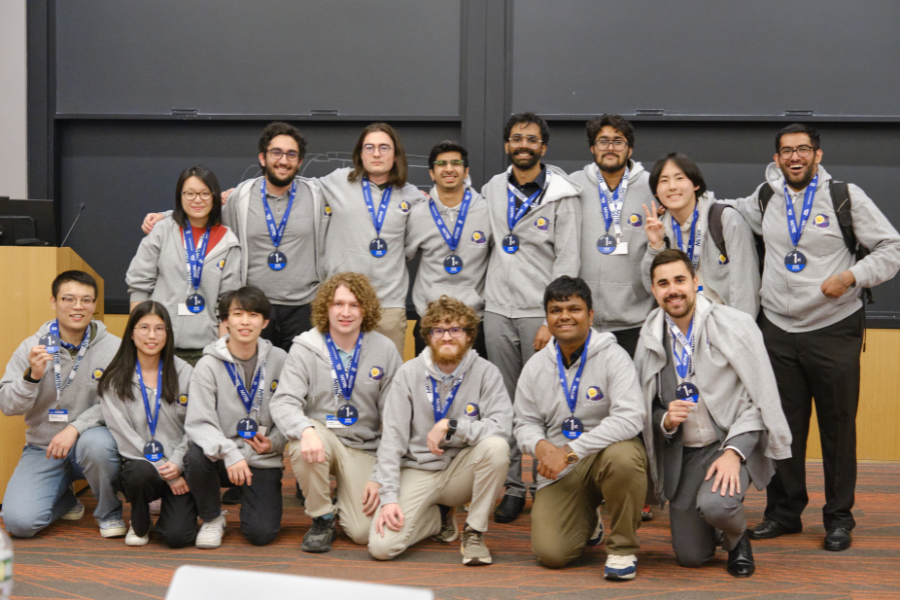
Carnegie Mellon Hacking Team Wins Fourth Consecutive MITRE eCTF
By Evan Lybrand
Media InquiriesOnce again, the Carnegie Mellon University (CMU) premier hacking team, the Plaid Parliament of Pwning (PPP), has taken home the gold at this year’s MITRE Embedded Capture-the-flag (eCTF) cybersecurity competition. This marks the fourth consecutive win for the team — a first for the competition. A team of 15 CMU students, including six from the Information Networking Institute (INI), were coached by a team of advisors that included INI Associate Teaching Professor Patrick Tague.
“The greatest values I see in the eCTF are the ways that the competition incorporates multiple aspects of real-world design — including systems, networking, software and security — and the way this naturally attracts, includes and values students with diverse academic backgrounds and perspectives,” said Tague. “Students on the team are able to learn from and support each other through the challenges in the competition, and every student provides unique value to the success of the team.”
The MITRE eCTF challenges competitors to design security solutions for the embedded systems found inside objects. These are systems found in devices like GPS and fitness trackers or the automotive industry. For this year’s competition, teams were tasked with designing and implementing a system that could securely encode and decode satellite TV data streams.
“The eCTF competition had a structure similar to that of a real company,” said Haonan Yan, a current M.S. in Information Security (MSIS) student. “We had roles such as a tech lead and a product manager, and a shared goal: to deliver a secure product within a limited timeframe. This environment taught me how to effectively report my progress and collaborate with team members to complete the project.”
From January 15 to April 16, teams from several universities across the country worked to design a secure system. During the first phase of the competition, teams design systems that meet security and functionality requirements. Next, teams send their designs to other competing schools, where their opponents attempt to hack them. Teams gain points if their systems hold up to the attacks and capture an opponent’s flag if they successfully hack into another team’s system.
“eCTF 2025 provided me with a platform to explore embedded systems and the security surrounding them on a deeper level, introducing me to new hardware attack vectors and challenging me to perform those attacks in real life,” said MSIS student Rohil Chaudhry. “The scale of the competition also showcased the critical importance of effective time management under pressure, maintaining clear, consistent communication with teammates and learning how to prioritize tasks dynamically based on shifting goals and constraints. These lessons have left a lasting impression and will continue to guide me in academic and professional settings.”
The CMU team accepted their award at the eCTF awards ceremony in Boston, Massachusetts, on April 25, with the $10,000 prize money going to the team’s efforts for the next competition.
This year’s team received funding from AT&T, Amazon Web Services, Cisco, Infineon, Nokia Bell Labs, Rolls-Royce and Siemens through the Cylab Partnership Program.
